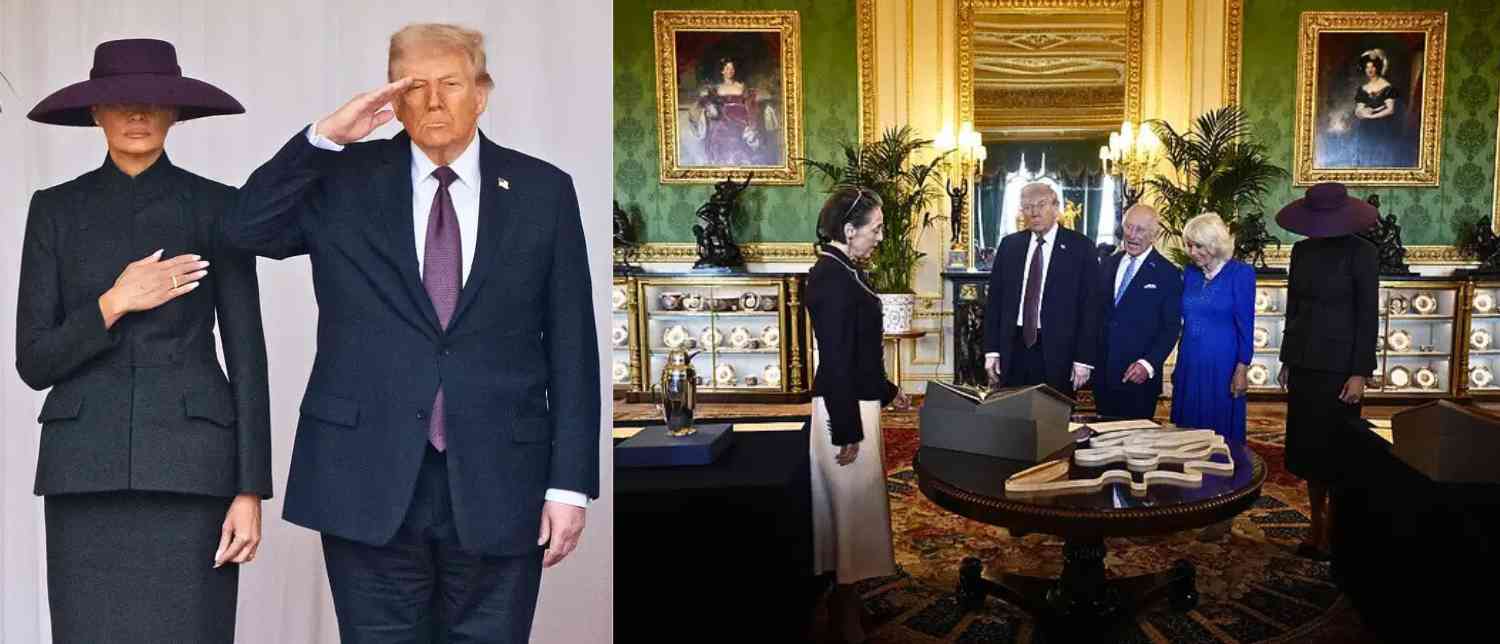The internet has once again proven that nothing escapes its sharp eye for humor. Former U.S. President Donald Trump’s recent visit to the United Kingdom has been making headlines, but what caught people’s attention this time were not his speeches or meetings—it was the unusual pictures of former First Lady Melania Trump. Within hours, those images sparked a flood of internet memes, turning her into a trending topic across platforms like X (formerly Twitter), Instagram, and TikTok.
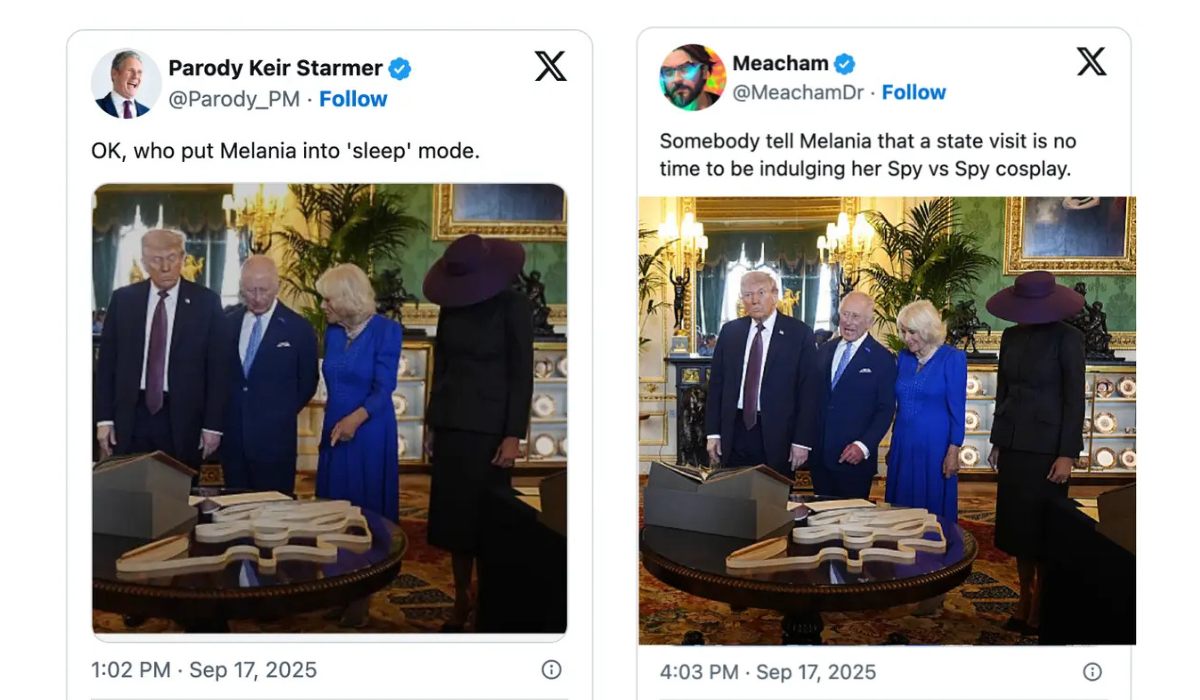
During the UK visit, Trump was seen attending a series of public events, meetings, and photo-ops. Melania was present in some of those moments, but pictures circulating online showed her in odd angles, strange expressions, and in situations that many users found baffling. Some even questioned whether the person in the photographs was the real Melania or a so-called “body double,” a conspiracy theory that has popped up multiple times over the years.
Others simply found the expressions unusual enough to edit them into humorous posts, comedy clips, and parodies. What might have been just ordinary photographs in another time quickly went viral, becoming a cultural talking point.
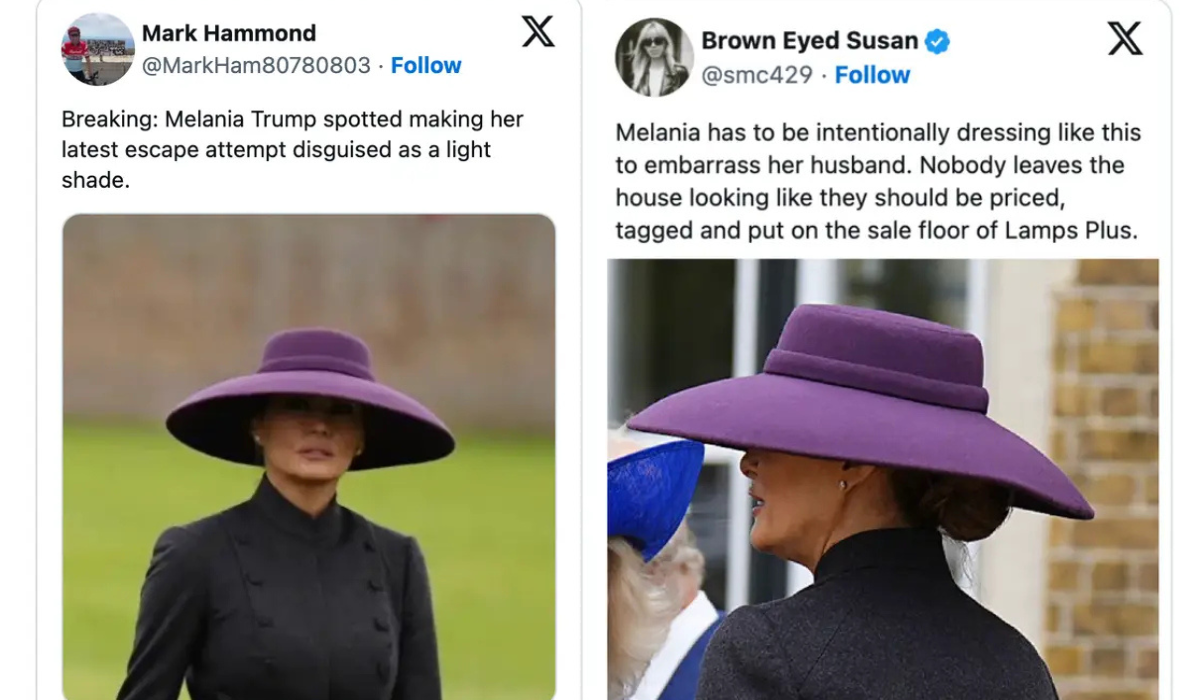
The speed at which these memes spread highlights how fast digital culture now works. Humor and satire often take center stage on the internet, especially when high-profile political figures are involved. Memes are also easy to create—often needing only a smartphone and a few seconds—making them the loudest way for everyday people to react to world events.
For younger audiences, memes have even replaced traditional commentary. Instead of long debates, they sum up opinions, jokes, or criticisms in a single image or short video. Experts in digital culture suggest that memes are now one of the most powerful tools shaping public conversations. In this case, Melania memes became bigger than the actual political events Trump was attending.
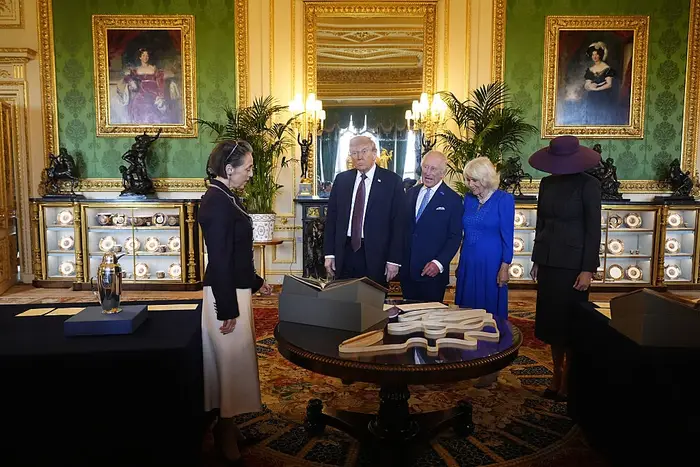
Not everyone sees the memes in the same way. Some viewers enjoy the humor and say it’s harmless fun in the spirit of internet culture. They argue that politicians and their families, being public figures, have always been subjects of caricatures, cartoons, and now internet jokes.
On the other hand, others think the constant meme-making borders on unnecessary scrutiny. Several social media users pointed out that women in politics, particularly political spouses like Melania, often face more personal commentary about their looks, expressions, or even clothing. This, they argue, can distract from actual political discussions that should be in the spotlight.
What People Are Saying Online
-
Many joked that the strange pictures looked “AI-generated” or “out of a simulation,” turning the images into a larger internet trend about what is real and what isn’t in 2025.
-
Some returned to the long-running rumor that Melania sometimes uses a stand-in, a claim widely dismissed but still popular as an online joke.
-
A group of meme creators used the images to make commentary about larger political issues, adding funny captions about global politics or U.S.–UK relations.
-
Others criticized the obsession with Melania memes, asking why public attention doesn’t focus more on the policies or meetings held during Trump’s visit.
This moment reveals something important about today’s internet-driven society. Political visits and diplomacy once relied heavily on speeches, meetings, and official reports to shape public opinion. Now, the digital age means a single photograph—or even a single expression—can overshadow international discussions.
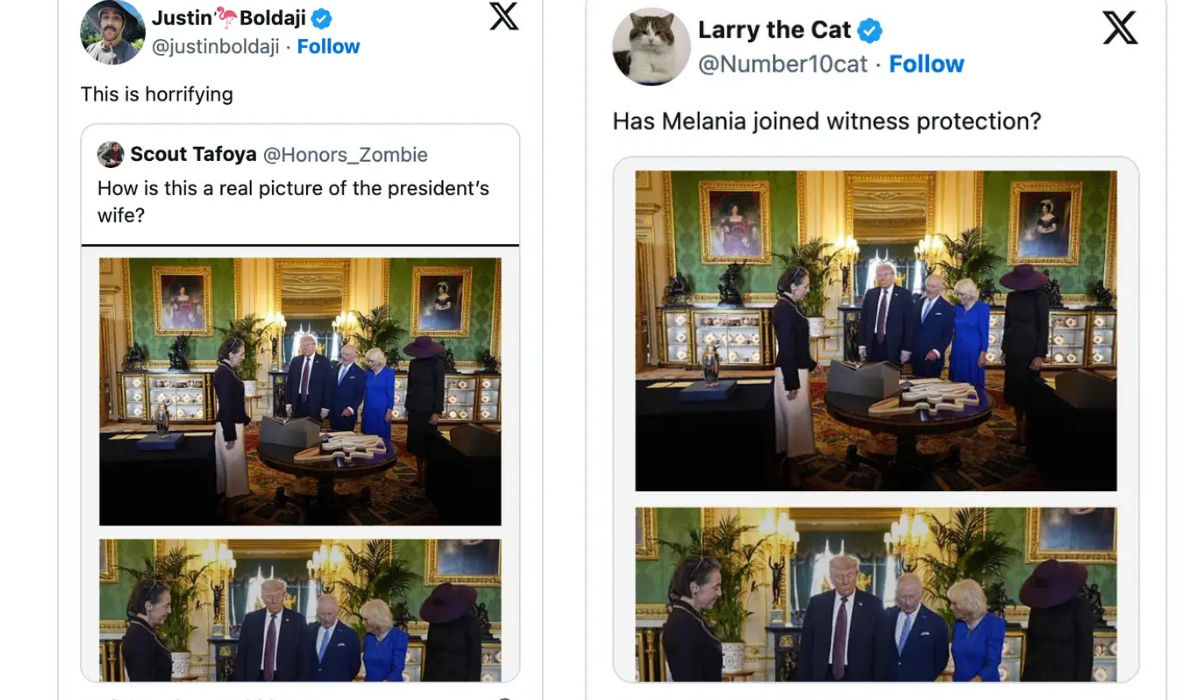
Memes work like pop-culture snapshots. They record not just the event, but how people want to interpret it. For some, Melania’s unusual images are just entertainment. For others, they are a sign that political reporting and public conversation are no longer controlled by official institutions but by the crowd.
Experts also note that while memes often seem harmless, they influence perceptions about individuals and events. Even if shared in jest, repeated jokes can become the only memory some people retain about a political figure or trip. That raises questions about how fair or balanced internet culture can be, and whether global political figures should adapt to this new reality.
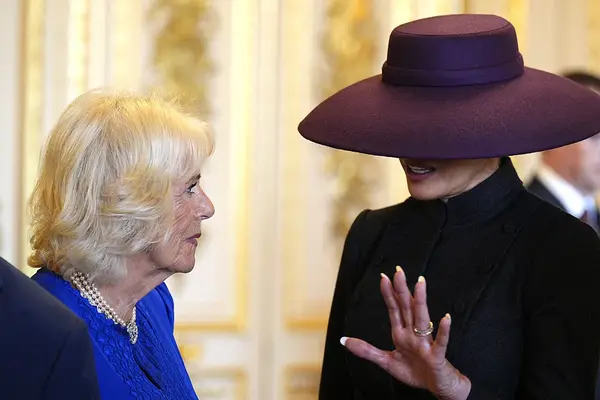
What the “Melania memes” episode really shows is how internet humor reflects society’s changing way of engaging with news. Instead of sitting through an official press briefing, many are likely to remember this UK visit through a handful of viral posts.
Whether one finds them funny or unfair, the memes have once again proven that the internet is its own stage, and everyone—from world leaders to their spouses—can become part of the show.
With inputs from agencies
Image Source: Multiple agencies
© Copyright 2025. All Rights Reserved. Powered by Vygr Media.

